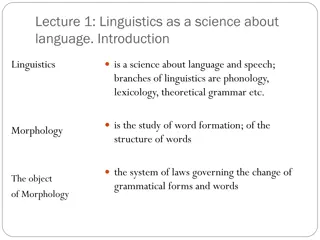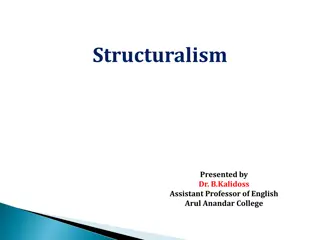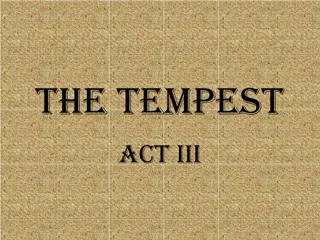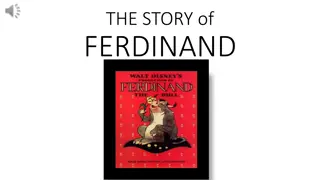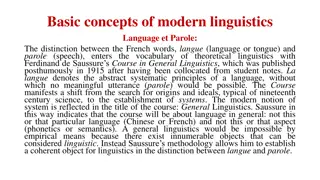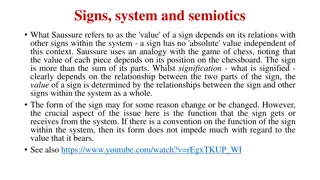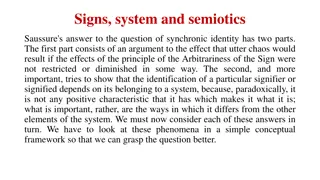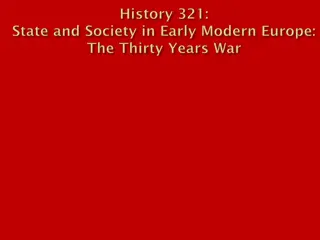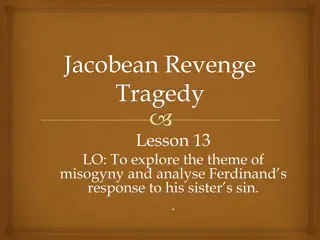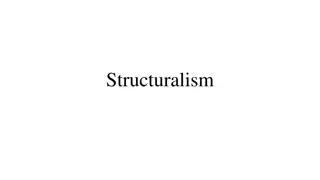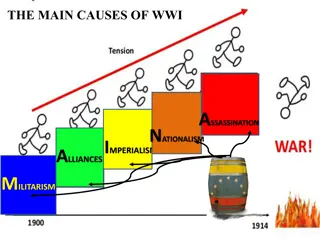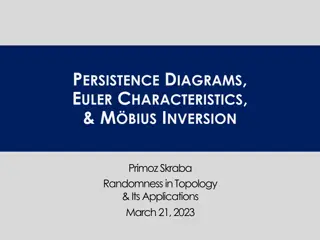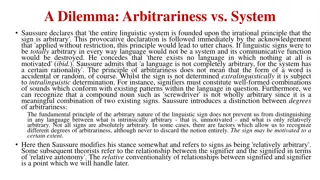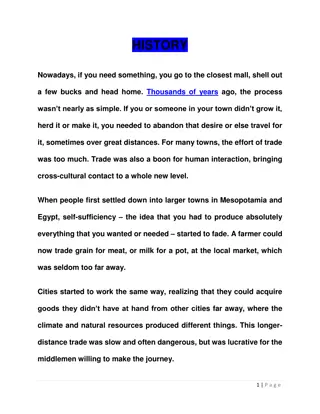Exploring the Two Dimensions of Meaning: Similarity and Contiguity in Language and Literature
This content delves into the dimensions of meaning, focusing on similarity and contiguity, as explored in language and literature. It discusses the significance of Saussure's paradigm and syntagm, Jakobson's theories on similarity and contiguity in discourse, and the impact of brain damage on langua
0 views • 66 slides
Major Developments Following World War I: Impacts and Events
World War I, starting in 1914 with the assassination of Archduke Ferdinand, led to significant developments such as the Treaty of Versailles, worldwide depression, and the rise of Nazism. The war had profound effects on global geopolitics and economies, setting the stage for further conflicts and ch
1 views • 16 slides
Linguistics: Exploring Language Structure and Morphology
Linguistics is the scientific study of language and speech, encompassing branches like phonology, lexicology, and morphology. This field delves into the levels of language structure, such as phonological, morphological, lexical, syntactic, semantical, pragmatical, and stylistical. Scholars began inv
8 views • 7 slides
Understanding Structuralism in Literature: Key Concepts and Evolution
Structuralism, as presented by Dr. B. Kalidoss, explores the order and arrangement in various forms like language and literature. It delves into the interrelationship between units and rules, proposing a deeper understanding of texts through linguistic analysis. The evolution of structuralism in lit
0 views • 17 slides
Insights into "The Tempest": Power, Manipulation, and Restoration
In Act III of "The Tempest," themes of power, manipulation, and restoration unfold. Ferdinand's labor for Miranda symbolizes love's easing of difficulties. Prospero orchestrates magic and illusion to ensure Miranda and Ferdinand fall in love. Stephano's drunken power play highlights selfish motives
0 views • 13 slides
The Story of Ferdinand by Munro Leaf
In "The Story of Ferdinand" by Munro Leaf, we meet a little bull named Ferdinand who prefers sitting quietly and smelling flowers instead of running and jumping with the other bulls. Despite his mother's concerns, Ferdinand finds joy in his favorite spot under a cork tree. This heartwarming tale sho
1 views • 32 slides
Understanding Saussure's Concepts of Langue and Parole in Modern Linguistics
The concepts of Langue and Parole introduced by Ferdinand de Saussure in the field of modern linguistics distinguish between the abstract systematic principles of language (Langue) and individual speech acts (Parole). Saussure's emphasis on the study of Langue as the foundation for meaningful uttera
0 views • 9 slides
Incredible Journey of Ferdinand Magellan: First Circumnavigation of the Earth
Ferdinand Magellan, a Portuguese explorer, led the Spanish expedition to the East Indies from 1519 to 1522, resulting in the first circumnavigation of the Earth completed by Juan Sebastián Elcano. Despite facing storms, mutinies, and challenges, Magellan's expedition reached the Spice Islands in 15
0 views • 40 slides
Understanding Signs, System, and Semiotics According to Saussure
Saussure's concept of sign value emphasizes the importance of relationships within a system, where a sign's meaning is not absolute but dependent on its interactions with other signs. He highlights the distinction between signification and value, showcasing how signs derive their value from the syst
0 views • 10 slides
Understanding Signs, Systems, and Semiotics in Linguistics
Saussure's theory of signs emphasizes the relationship between a signifier and a signified, highlighting the importance of belonging to a system of differences. Signs, as interpreted meaningful entities, play a crucial role in semiotics, shaping our understanding and communication. The concept of si
0 views • 11 slides
Australians in WW1: Into the Unknown
In June 1914, the assassination of Archduke Franz Ferdinand triggered a chain of events leading to World War I. Australia, as part of the British Empire, declared support for the war effort. Despite the distance from the theatres of war, over 300,000 Australians enlisted, with significant casualties
0 views • 22 slides
World War I: Causes and Early Battles
The outbreak of World War I was fueled by nationalism, imperialism, militarism, and alliances. The assassination of Archduke Francis Ferdinand sparked a chain reaction leading to widespread conflict in Europe. Early battles like the Battle of Marne showcased trench warfare. Land and sea battles ensu
0 views • 23 slides
Political and Diplomatic Developments of the 1620s
The 1620s were marked by key political and diplomatic developments including the issuance of the Edict of Restitution by Ferdinand II in 1629. Warfare financing, military conflicts, and the revival of Catholicism in the Empire stirred mixed reactions from France and Spain. The era also saw significa
0 views • 28 slides
Causes and Outbreak of World War I
Various factors such as nationalism, imperialism, militarism, and the assassination of Archduke Francis Ferdinand led to the outbreak of World War I. The tensions in Europe escalated as countries formed alliances and mobilized for war. The conflict resulted in early battles like the Battle of Marne
0 views • 23 slides
The Dark Period of the Spanish Inquisition
The Spanish Inquisition, led by figures like Tomas Torquemada, targeted Muslims, Jews, and non-Christians in a ruthless pursuit of confessions using torture methods like the rack, water torture, and the brank. Ferdinand and Isabella of Spain oversaw this era of religious persecution that lasted from
0 views • 22 slides
Insights into World War I Through Visual Discovery
Explore significant events and experiences of World War I through imagery and primary sources. Delve into the assassination of Franz Ferdinand, the technology used in the war, the grim reality of trench warfare, and the psychological toll on soldiers. Gain a deeper understanding of the impact and le
0 views • 20 slides
Exploring Misogyny in Jacobean Revenge Tragedy
The theme of misogyny in Jacobean revenge tragedy plays like "The White Devil" and "The Duchess of Malfi" is examined, focusing on the societal and biblical contexts that influence the portrayal of female characters. Through analysis of Ferdinand's response to his sister's sin, the exploration delve
0 views • 8 slides
Understanding Structuralism in Linguistics: An Overview
Structuralism emerged as a dominant approach in linguistic studies from the 1920s to the 1960s, led by figures like Ferdinand de Saussure. This philosophical perspective focused on the study of language as a stable system of signs, emphasizing the interrelation of mental representations of sounds an
1 views • 28 slides
World War I: Causes, Timeline, and Impact
Learn about the main causes of WWI including alliances, imperialism, nationalism, militarism, and the assassination of Archduke Ferdinand. Discover how the war started, the involvement of different countries, trench warfare, sinking of the Lusitania, the impact on America, and the eventual entry of
0 views • 18 slides
Randomness in Topology: Persistence Diagrams, Euler Characteristics, and Möbius Inversion
Exploring the concept of randomness in topology, this work delves into the fascinating realms of persistence diagrams, Euler characteristics, and Möbius inversion. Jointly presented with Amit Patel, the study uncovers the vast generalization of Möbius inversion as a principle of inclusion-exclusio
0 views • 57 slides
The Principle of Arbitrariness in Linguistic Signs: Saussure's Insight
Saussure's declaration on the arbitrariness of linguistic signs is thought-provoking, emphasizing that while signs are arbitrary, complete arbitrariness would lead to chaos. He distinguishes between degrees of arbitrariness and acknowledges that signs are not entirely arbitrary, being subject to lin
0 views • 9 slides
Silk Road
\/\/seribangash.com\/\nSilk Road is a term introduced in 1877 by German geographer Ferdinand von Richtofen to describe the trade routes between the Mediterranean basin and the Far East. Silk was one of the main commodities exchanged along these route
0 views • 21 slides
The Assassination of Archduke Ferdinand and the Outbreak of WWI
Tension between Austria-Hungary and the Slavic states, the formation and objectives of the Black Hand society, the assassination of Archduke Franz Ferdinand, and the ensuing events that led to the outbreak of World War I in the Balkans.
0 views • 39 slides
Insights on Cardiometabolic Risk Reduction and Diabetes Treatment in 2019
Cardiologists in 2019 must address the significant cardiovascular risks associated with diabetes mellitus. Dr. Keith C. Ferdinand highlights the increased rates of heart disease, stroke, and heart failure in patients with diabetes. Despite advancements, cardiovascular risk management remains subopti
0 views • 10 slides


